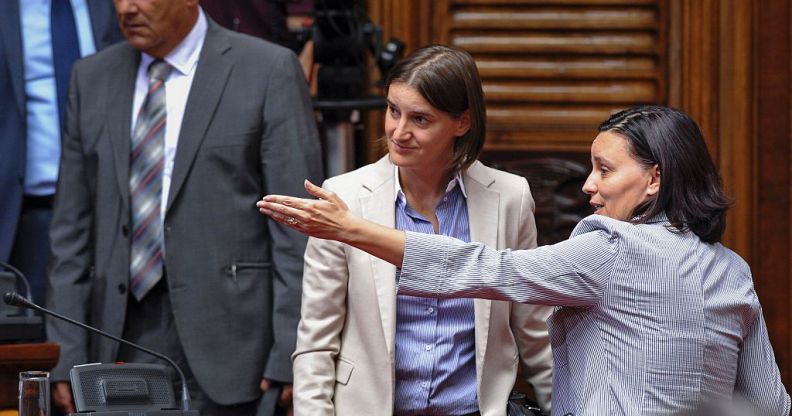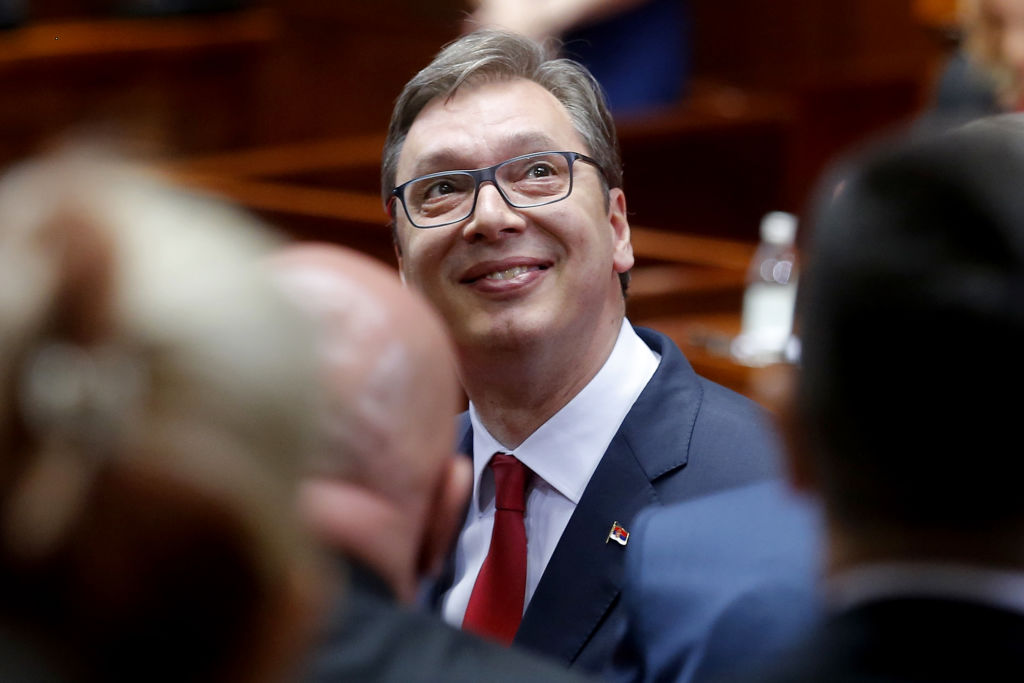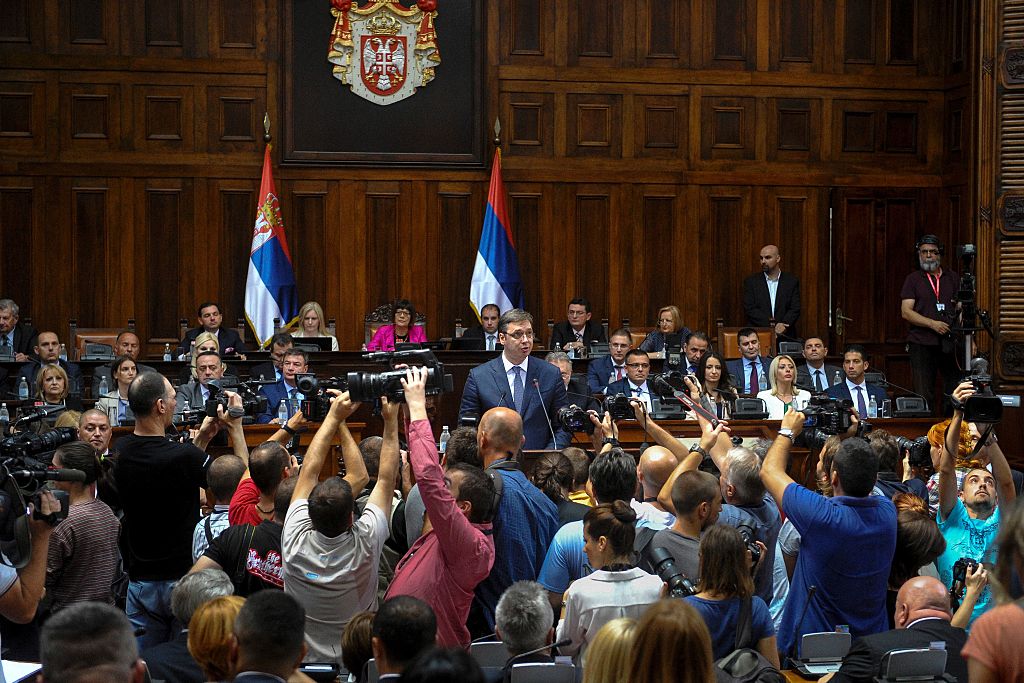Politicians refuse to back Serbia’s first lesbian leader Ana Brnabic due to her sexuality

Serbia’s future Public Administration Minister Ana Brnabic (C) arrives to the Serbian Parliament on August 9, 2016 in Belgrade.
Serbia's future Public Administration Minister Ana Brnabic (C) arrives to the Serbian Parliament on August 9, 2016 in Belgrade.
Serbia’s first ever LGBT nominee for prime minister might not be elected because of her sexuality.
Out lesbian politician Ana Brnabic was formally nominated by President Aleksandar Vučić last week.
Last year, Brnabic became the first gay cabinet minister when Vučić appointed her to be Minister for Public Administration.

Vučić, leader of the right-wing Serbian Progressive Party, effectively made her prime minister of the conservative country.
However it now looks like the Prime Minister-designate could fail to get enough votes to be confirmed by parliament.
Some MPs are refusing to vote for her due to her sexual orientation.
A snap election is expected if this happens – putting her future in the country’s hands.
Vučić met with 100 of his Serbian Progressive Party lawmakers who have promised to back Brnabic in the parliament.
The parliament has 250 seats, though – meaning she needs at least 26 more votes to be confirmed.
After the meeting Vučić spoke to press only to say, “everything will fine.”
The vote was due to be held this week, but has now been pushed back.
Vučić, a former extremist who has promoted LGBT rights as the country moves closer to the European Union, said choosing the lesbian MP was “a difficult decision reached in the interest of Serbia and its citizens,” according to Associated Press.
When he chose her for his cabinet in August, Vučić challenged reporters, saying: “If you can tell me something bad about her professional resume, tell me.
“I’m only interested in what her result will be in the difficult job ahead of her.
“She has a great energy and I am looking forward to working with her.”
The bold decision could help break down barriers in the former Yugoslav Balkan country, which has been reticent to advance on LGBT rights.
Homosexuality only became legal nationwide in 1994, and there is still no recognition of same-sex relationships.

Same-sex marriage remains constitutionally prohibited.
Belgrade Pride parade was banned in 2011, 2012 and 2013 by authorities over fears of violence – after violent clashes marred Belgrade Pride celebrations in 2010.

